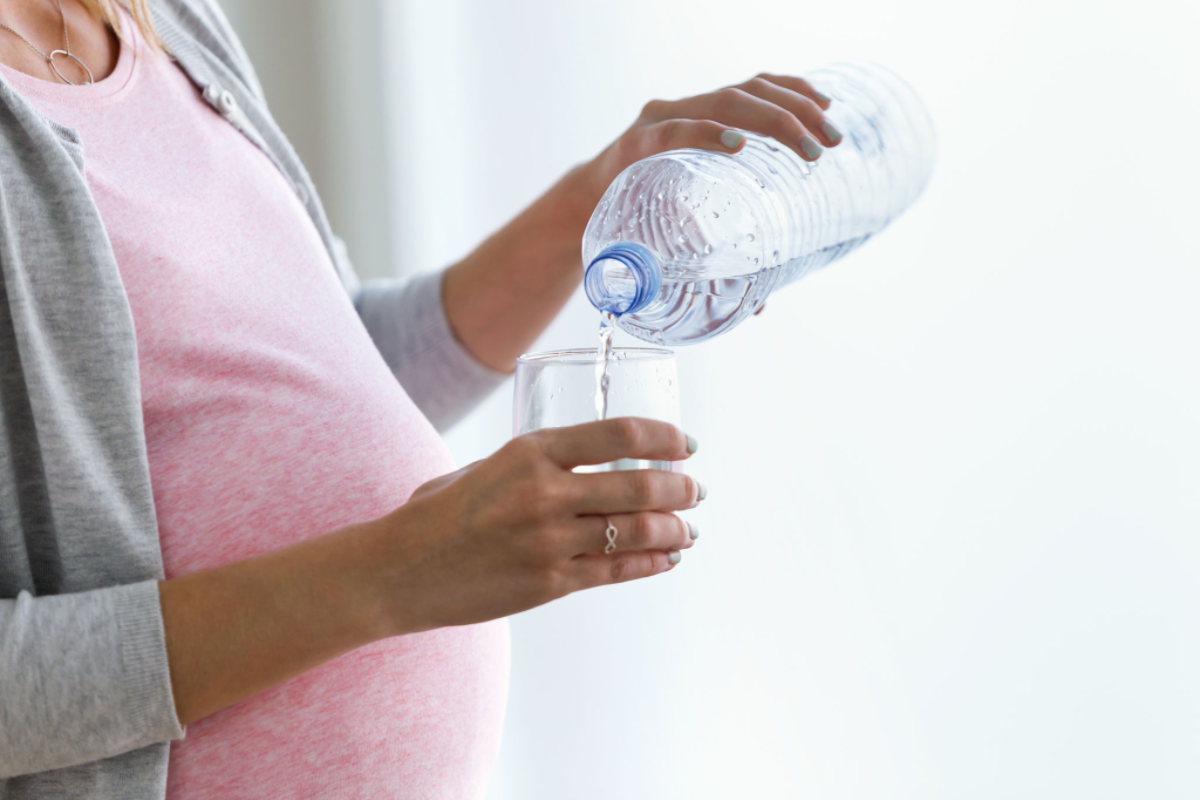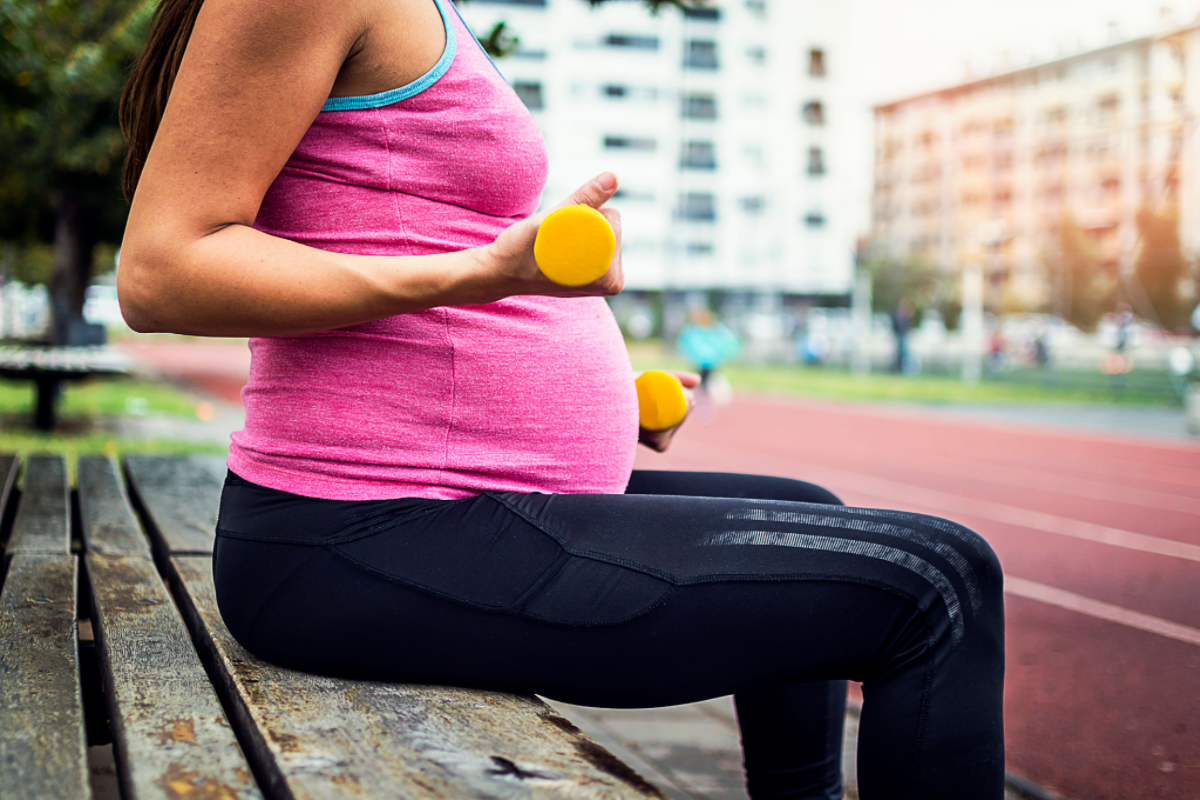Being pregnant is miraculous, but adding the scorching Texas heat into the equation can pose unique challenges for expectant mothers. At the Motherhood Center, we understand the importance of staying safe and comfortable during pregnancy, especially in extreme weather conditions. That’s why we’ve put together this guide to help pregnant women navigate the Texas heat with essential tips explicitly tailored for pregnant women like you. Whether in Houston, Dallas, Austin, or anywhere else in the Lone Star State, these tips will come in handy as you care for yourself and your growing baby.
Living in Texas means dealing with hot summers, and when you’re pregnant, it’s crucial to be aware of the potential risks and take necessary precautions. This guide is specifically designed for expectant mothers in Texas, where the heat can be unforgiving. We’ll cover various aspects of staying cool and safe, from hydration and clothing choices to indoor climate control and outdoor time management. By following these tips, you’ll be better equipped to enjoy a safe and comfortable pregnancy, no matter how high the temperatures soar.
In this article, we’ll delve into the importance of staying hydrated and discuss the ideal water intake for pregnant women in hot climates. We’ll also explore the significance of dressing for comfort and safety, including suitable fabrics and protective accessories. Additionally, we’ll provide strategies for maintaining a relaxed indoor environment and managing outdoor activities during the hottest parts of the day. We’ll also touch upon nutrition tips for hot weather and shed light on the potential risks of heat on pregnancy health. Lastly, we’ll cover essential precautions for travel, coping with power outages, and more.
Importance of Staying Hydrated
Staying adequately hydrated is essential for pregnant women, particularly in the hot Texas climate. Hydration plays a vital role in supporting your overall health and ensuring the optimal development of your baby. During pregnancy, your body’s water needs to increase to support the expansion of blood volume, amniotic fluid, and placenta development. Additionally, water helps transport nutrients to your baby, aids digestion, regulates body temperature, and promotes healthy kidney function. Staying hydrated can reduce the risk of complications such as urinary tract infections and constipation.
The connection between hydration and pregnancy health
Proper hydration is vital for pregnant women. It supports numerous aspects of pregnancy health. Adequate hydration helps regulate your body temperature and prevents overheating, which can be particularly challenging in hot climates like Texas. It also ensures the delivery of essential nutrients to your baby, supports the formation and maintenance of amniotic fluid, aids digestion, and helps prevent common issues such as constipation and urinary tract infections. Proper hydration is essential for maintaining healthy amniotic fluid levels, which provide a protective environment for your growing baby.
Ideal water intake for pregnant women in hot climates
In hot climates like Texas, the risk of dehydration is higher, especially for pregnant women with increased fluid requirements. Increasing your water intake is essential to compensate for the additional fluid loss through sweating. The American Congress of Obstetricians and Gynecologists (ACOG) recommends that pregnant women aim for about 10 cups (2.3 liters) of fluids daily. This includes water as the primary source of hydration. However, hydrating foods such as watermelon, cucumbers, and citrus fruits can also increase fluid intake. Listening to your body and drinking when you’re thirsty is essential, as individual fluid needs may vary.
Dehydration symptoms to watch out for
Dehydration can have adverse effects on both you and your baby during pregnancy. It’s essential to be aware of the signs of dehydration so you can take prompt action. Common symptoms include excessive thirst, dark-colored urine, dry mouth, dizziness, fatigue, and reduced urine output. Increasing fluid intake is crucial if you experience any of these symptoms. Ignoring dehydration can lead to complications such as low amniotic fluid levels, preterm labor, and even neural tube defects. If you’re concerned about your hydration levels or experiencing persistent dehydration symptoms, consult your healthcare provider for personalized guidance and recommendations.
Dressing for Comfort and Safety
Choosing suitable clothing becomes crucial during pregnancy, especially in the sweltering Texas heat. Dressing for comfort and safety will help you stay cool and avoid potential complications. Consider the following tips:
Choosing the suitable fabrics for Texas heat
Opt for lightweight and breathable fabrics like cotton, linen, and moisture-wicking materials. These fabrics allow air circulation and help absorb moisture, keeping you cool and comfortable. Avoid synthetic materials that trap heat and moisture, leading to discomfort and potential skin irritations.
Importance of loose, breathable clothing
Wear loose-fitting garments that allow air to circulate freely around your body. Tight clothing can restrict airflow and increase heat retention. Maternity-specific clothing, such as flowy dresses, loose tops, and elastic waistbands, provides comfort and accommodates your growing belly.
Protective accessories: hats, sunglasses, and more
Shield yourself from the sun’s harmful rays by wearing a wide-brimmed hat and sunglasses with UV protection. Protecting your face and eyes prevents sunburn and reduces the risk of heat-related complications. Additionally, consider lightweight and breathable footwear to ensure proper air circulation and reduce the risk of swelling or discomfort.
Staying relaxed and comfortable during pregnancy is essential for your well-being and your baby’s. Prioritize clothing that allows optimal airflow and protects you from the sun’s heat and harmful UV rays.
Indoor Climate Control
Effective Home Cooling Strategies
Keeping your home cool is critical during the hot Texas summers, especially when you’re pregnant. Optimize your living spaces for heat prevention by using light-blocking window treatments or thermal curtains that deflect the sun’s heat. Try to limit the use of heat-generating appliances during the hottest parts of the day. Fans can also be used strategically to improve air circulation, bringing a cooling effect to your rooms.
Energy-Efficient Air Conditioning and Fan Usage
Air conditioning is a lifesaver during Texas summers. If you have an air conditioning system at home, it’s essential to maintain it well for optimal performance. Regular servicing can ensure it runs efficiently and cools your home effectively. If you’re using fans, consider energy-efficient models. Ceiling fans used in conjunction with AC can circulate the cool air more effectively, allowing you to set the thermostat a bit higher while still maintaining comfort.
Recognizing When Indoor Temperatures Are Unsafe
While keeping the indoor environment comfortable is necessary, it’s also crucial to recognize when temperatures may become unsafe. Indoor heat index values can be higher than outside due to humidity levels. If your home becomes excessively hot and you feel uncomfortable, it might be better to relocate to a more relaxed place temporarily. Remember, maintaining a safe and comfortable environment is about comfort and ensuring your and your baby’s well-being.
For more advice on managing indoor climates effectively during a Texas summer pregnancy, consider contacting the experts at the Motherhood Center in Houston, Texas. Their team can provide personalized advice based on your specific needs and circumstances.
Safe Outdoor and Indoor Time Management
Best Times of Day for Outdoor Activities
Navigating outdoor activities during a hot Texas summer requires strategic planning, especially for pregnant women. Aim to avoid the peak heat hours between 10 AM and 4 PM, when the sun’s rays are most intense. Instead, plan your activities for early mornings or late evenings, when temperatures are typically cooler. This simple shift in timing can drastically reduce the risk of overheating and increase your overall comfort.
Avoiding Sun Exposure During Peak Heat Hours
In situations where sun exposure is unavoidable, ensure to take adequate precautions. Always seek shade when you can, or consider using an umbrella or parasol for sun protection. Remember that sunburns can complicate your body’s cooling mechanism and increase the risk of overheating, which is particularly unsafe during pregnancy.
Safe Outdoor Exercises for Pregnant Women
Exercise is usually beneficial during pregnancy, but choosing safe, low-impact activities in hot weather is crucial. Swimming, for example, offers a cooling respite while providing a total body workout. Early morning or late evening walks are another excellent option. Regardless of your chosen activity, always stay hydrated, take frequent breaks, and listen to your body, stopping immediately if you feel dizzy, breathless, or uncomfortable.
Indoor Exercises for Pregnant Women
When the Texas heat is too intense, indoor exercises can keep you active and safe. The Motherhood Center in Houston offers a range of fitness and yoga programs tailored for expecting mothers. These classes are designed to enhance your strength, flexibility, and overall well-being, all in a climate-controlled environment. Participating in these programs helps you stay fit during pregnancy and equips you with skills useful for labor and postpartum recovery.
For more detailed and personalized advice on managing safe outdoor and indoor activities during a Texas summer pregnancy, contact the expert team at the Motherhood Center. They’re committed to helping expecting mothers navigate their pregnancy journey comfortably and confidently, regardless of weather conditions.
Nutrition Tips for Hot Weather
Foods That Help Maintain Hydration Levels
Maintaining optimal hydration is paramount during a hot Texas summer, especially for pregnant women. Consuming foods high in water content can significantly aid in achieving this. Fresh fruits and vegetables like watermelon, cucumbers, oranges, and berries are excellent choices. Not only do they help replenish fluid levels, but they also provide vital vitamins and minerals. Dairy products, like yogurt, can also help keep you cool while supplying the calcium and protein necessary during pregnancy.
Nutritional Requirements for Expectant Mothers in Hot Climates
The hot climate demands a particular focus on nutrition for expectant mothers. The body’s requirements for certain nutrients increase during pregnancy, and these needs can intensify in hot weather due to increased sweating and the potential for dehydration. A balanced diet, rich in lean proteins, whole grains, fruits, vegetables, and healthy fats, becomes critical. Staying hydrated with water and beverages like coconut water, which contain essential electrolytes, can help maintain your body’s salt balance and prevent heat-related issues.
Foods to Avoid During Hot Weather
In hot weather, avoiding foods that can dehydrate you or increase your body temperature is best. These include spicy foods, caffeine, and alcohol. Foods high in salt can also drain you quickly and should be limited. Instead, focus on meals that are light and easy to digest.
At the Motherhood Center in Houston, Texas, we understand the unique nutritional requirements of expectant mothers. Our prenatal nutrition education program provides comprehensive information and personalized advice on maintaining a balanced diet in hot weather. Our experts consider factors like dietary preferences, health conditions, and pregnancy progression. Contact our team for expert guidance on navigating your nutritional needs during a Texas summer pregnancy.
Heat and Pregnancy Health Risks
Understanding How Heat Affects Pregnancy
Heat can significantly impact pregnancy, mainly due to physiological changes that occur during this period. Pregnant women often have a higher basal body temperature, making them more susceptible to overheating. Furthermore, during pregnancy, your body needs to work harder to cool you and your baby, putting additional stress on your body. Prolonged exposure to high temperatures can lead to heat-related illnesses without proper hydration and rest.
Risks of Overheating: From Discomfort to Early Labor
Overheating during pregnancy is not just about discomfort. It can pose serious health risks for both the mother and the baby. Mild symptoms might include dizziness, nausea, and fatigue. However, severe cases can lead to heat exhaustion or even heat stroke, a medical emergency. Overheating can also increase the risk of complications like early labor and certain birth defects. Thus, managing heat exposure and staying adequately hydrated is crucial, especially during the hot Texas summer.
Recognizing Signs of Heat Exhaustion and Heat Stroke
Heat exhaustion is a heat-related illness that can occur after you’ve been exposed to high temperatures, and it is often accompanied by dehydration. Symptoms may include heavy sweating, rapid pulse, dizziness, fatigue, nausea, or headache. If left untreated, heat exhaustion can lead to heatstroke, a more severe condition characterized by a body temperature of 104 F or higher and symptoms like dry skin, rapid breathing, racing heart rate, confusion, or unconsciousness. If you suspect heatstroke, it’s essential to seek medical attention immediately.
The Motherhood Center in Houston, Texas, is committed to ensuring the health and safety of expecting mothers during their pregnancy journey. Our health and wellness amenities and parenting education classes are designed to equip you with the knowledge and tools necessary to navigate challenges such as a hot Texas summer. Our team is always here to assist with any concerns or questions.
 Pool and Water Safety
Pool and Water Safety
Taking a dip in the pool can be a refreshing way to beat the Texas heat during pregnancy. However, it’s crucial to prioritize safety and take necessary precautions to ensure a safe and enjoyable experience. Here are some key points to consider:
Benefits of swimming during pregnancy
Swimming is a low-impact exercise that offers numerous benefits for pregnant women. The buoyancy of water helps alleviate pressure on joints and relieve swelling and discomfort. It also supports cardiovascular health, improves circulation, and helps maintain muscle tone without excessive strain on your body. Additionally, swimming can help reduce swelling in the legs and ankles, a common issue during pregnancy.
Pool safety guidelines for expectant mothers
When enjoying the pool, following safety guidelines to minimize risks is essential. Ensure that the pool water is clean and adequately maintained to prevent infections. Consider swimming in areas with a lifeguard present or have someone accompany you for added safety. Take frequent breaks to rest and avoid overexertion. Be cautious when entering and exiting the pool to prevent slips or falls. Lastly, be mindful of your body’s limits and listen to any discomfort or fatigue, adjusting your activities accordingly.
Risks and precautions of hot tubs and saunas
While swimming is generally considered safe during pregnancy, it’s essential to be cautious about hot tubs and saunas. Excessive heat can raise your body temperature, potentially affecting your baby’s development. Hot tubs, in particular, can cause overheating and pose risks of dehydration and dizziness. It’s best to avoid hot tubs and saunas, especially during the first trimester when the baby’s organs form. If you use a hot tub, ensure the temperature is not above 100°F (37.8°C) and limit your time to 10 minutes or less.
Remember to consult your healthcare provider before engaging in water-related activities during pregnancy. They can provide personalized advice based on your specific circumstances and guide you on how to enjoy the pool safely.
Essential Precautions for Travel
Traveling during pregnancy requires careful planning and consideration, especially when managing the heat and ensuring comfort and safety. Whether you’re embarking on a road trip or taking to the skies, here are some essential precautions to keep in mind:
Preparing for road trips in the heat
Plan your route carefully and consider the weather conditions if you’re traveling by car. Check the forecast for each destination to anticipate hot temperatures. Before hitting the road, ensure your vehicle’s air conditioning system is in good working condition to keep you cool during the journey. Pack a cooler with plenty of water and healthy snacks to stay hydrated and nourished throughout the trip. Take frequent breaks to stretch your legs, use restroom facilities, and avoid prolonged sitting, which can lead to discomfort.
Tips for staying cool during long car rides
During long car rides, it’s essential to prioritize your comfort and well-being. Dress in loose, breathable clothing, and consider using seat covers made of cool materials like cotton or linen. Use sunshades or window visors to minimize direct sunlight and heat from entering the vehicle. Take advantage of air conditioning or fans, adjusting the temperature to a comfortable level. Stay hydrated by drinking plenty of water, and consider using a portable fan or cooling towel to provide additional relief from the heat.
Navigating air travel while pregnant in the summer
If you plan to travel by air during pregnancy, there are a few precautions, especially in the summer months. Stay well-hydrated by drinking water before, during, and after the flight. Choose loose, comfortable clothing and wear compression socks to promote healthy blood circulation and reduce the risk of swelling. Request an aisle seat for more frequent restroom breaks and easy movement. Prioritize relaxation during your flight, and consider wearing an eye mask and a neck pillow for added comfort. If you have any concerns or medical conditions, consult your healthcare provider before traveling by air.
Remember, each pregnancy is unique, and you must consult your healthcare provider before making travel plans. They can provide personalized guidance and ensure you take the necessary precautions for a safe and comfortable journey.
Coping with Power Outages
Power outages can occur unexpectedly, particularly during the summer when electricity demand is high. It’s essential to be prepared and know how to cope with power outages, especially when pregnant. Here are some critical tips to help you stay cool and safe during extended power outages:
How to prepare for power outages in the summer
Before a power outage occurs, it’s crucial to have a plan in place. Prepare an emergency kit that includes essential items such as flashlights, extra batteries, a battery-powered fan, non-perishable food, and a manual can opener. Keep a supply of bottled water to stay hydrated. Consider purchasing a battery-operated or solar-powered phone charger to ensure communication. Familiarize yourself with local emergency resources and have significant contact numbers readily available.
Staying cool and safe when the AC goes out
When the air conditioning (AC) goes out during a power outage, it can quickly become uncomfortable, especially in the Texas heat. To stay cool, close curtains or blinds to block out direct sunlight and keep windows and doors closed to maintain a cooler indoor temperature. Use battery-powered fans or handheld fans to circulate air. Seek relief by placing cool towels on your neck or wrists and consider taking cool showers or baths. Stay hydrated by drinking plenty of water and avoid strenuous activities to prevent overheating.
Protecting your health during extended outages
During prolonged power outages, it’s crucial to prioritize your health and well-being. If you cannot stay home due to extreme heat, seek alternative arrangements, such as staying with family or friends or locating a designated cooling center. Monitor your body for signs of heat-related illnesses such as heat exhaustion or heatstroke. If you experience dizziness, rapid heartbeat, or nausea symptoms, seek medical attention immediately.
Remember, it’s essential to have a plan in place and stay informed during power outages. Follow any guidance provided by local authorities and utility companies. By taking proactive measures and staying prepared, you can navigate power outages with greater ease and ensure the safety and well-being of yourself and your baby.
Embracing a Safe and Comfortable Pregnancy in the Texas Heat
As an expectant mother in Texas, navigating the intense heat of the summer months requires careful planning and consideration. By following the essential tips outlined in this guide, you can ensure a safe and comfortable pregnancy despite the challenges posed by the Texas heat. Let’s recap the key points covered:
This article emphasized the importance of staying hydrated, particularly in hot climates like Texas. Adequate hydration supports your overall health and the development of your baby. Remember to aim for about 10 cups (2.3 liters) of fluids per day, primarily through water consumption, and be mindful of dehydration symptoms.
Dressing for comfort and safety is crucial during pregnancy, especially in the sweltering Texas heat. Choose lightweight and breathable fabrics, opt for loose-fitting clothing, and use protective accessories like hats and sunglasses to shield yourself from the sun’s rays.
Managing indoor and outdoor climates is essential. Keep your home cool using effective home cooling strategies and energy-efficient air conditioning. When spending time outdoors, plan activities during more excellent parts of the day and take precautions to avoid overexposure to the sun and heat.
Maintaining a well-balanced diet that supports hydration and meets your and your baby’s nutritional needs is crucial. Incorporate hydrating foods and consult with your healthcare provider to ensure you’re meeting your specific requirements.
Recognize the potential risks of heat on pregnancy health, including the possibility of overheating and related complications. Be mindful of signs of heat exhaustion and heatstroke, and seek medical attention if needed.
If you plan to enjoy the pool, prioritize safety by following pool safety guidelines, avoiding hot tubs and saunas, and being aware of the potential risks of excessive heat exposure.
When traveling, whether by road or air, take necessary precautions to ensure your comfort and well-being. Stay hydrated, dress appropriately, and consult your healthcare provider for specific travel considerations.
Lastly, prepare for power outages by having an emergency plan in place, staying cool and safe during outages, and prioritizing your health and the health of your baby.
Remember, your well-being and your baby’s health are of utmost importance. Adapt to changing weather conditions, listen to your body’s needs, and seek guidance from your healthcare provider whenever necessary. These essential tips allow you to embrace a safe and comfortable pregnancy, even in the Texas heat.
Frequently Asked Questions (FAQs)
Here are some commonly asked questions about pregnancy in the Texas heat:
Is it safe for pregnant women to be out in 90-degree weather?
While every pregnancy is unique, being out in 90-degree weather can be safe for pregnant women if certain precautions are taken. It’s important to stay hydrated, dress appropriately in lightweight and breathable clothing, seek shade when possible, and avoid prolonged exposure to direct sunlight. Additionally, listening to your body and paying attention to any signs of discomfort or overheating is crucial. If you have any concerns, consult with your healthcare provider for personalized advice.
How can heat affect the baby in the womb?
Extreme heat can affect the baby in the womb. Prolonged exposure to high temperatures may increase the risk of dehydration, overheating, and potential complications. It’s important to regulate your body temperature, stay hydrated, and avoid activities that could lead to excessive heat exposure. Taking precautions and managing the heat effectively can help create a safe and comfortable environment for your growing baby.
Can extreme heat cause early labor?
While extreme heat may not directly cause early labor, it can trigger certain factors contributing to preterm labor. Dehydration and overheating can stress the body, potentially leading to contractions. It’s essential to stay well-hydrated, avoid excessive heat exposure, and seek medical attention if you experience any signs of preterm labor, such as regular contractions, lower back pain, or changes in vaginal discharge.
What temperature is considered too hot for pregnancy?
There isn’t a specific temperature universally considered too hot for pregnancy. However, it’s essential to be cautious and take necessary precautions when temperatures are high, especially in the Texas heat. Heat-related risks can vary based on humidity, individual tolerance, and overall health. It’s best to monitor your body’s response, stay hydrated, and seek shade or air-conditioned environments to maintain a safe and comfortable body temperature.
How do babies survive the heat in the womb?
Babies in the womb are protected and regulated by the amniotic fluid, which helps maintain a relatively stable temperature. The body’s natural mechanisms, such as the mother’s body temperature regulation and the placental blood flow, play a role in keeping the baby within a safe range. However, expectant mothers must take precautions to prevent overheating and ensure their well-being, which can indirectly affect the baby’s comfort and health.
If you have any additional questions or concerns about pregnancy in the Texas heat, it’s always best to consult your healthcare provider for personalized guidance and support.







